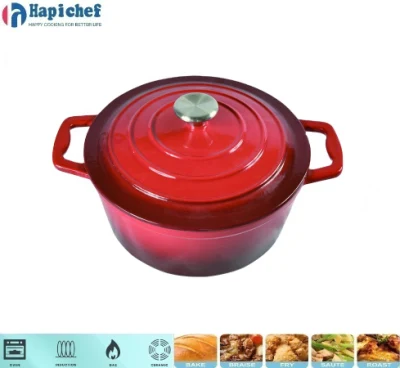Exploring the Benefits of Cooking with Cast Iron Stew Pots for Delicious Meals
The Timeless Appeal of Cast Iron Stew Pots
Cooking has always been a universal language, speaking to our senses and evoking memories of family gatherings and cozy nights at home. One kitchen tool that has stood the test of time and continues to be a staple for home chefs and culinary enthusiasts alike is the cast iron stew pot. With its durability, heat retention, and versatility, a cast iron stew pot not only enhances cooking but also serves as a cherished heirloom.
The Heritage of Cast Iron
Cast iron cookware has a rich history, dating back to ancient China. Its popularity grew throughout Europe and eventually made its way to America, where it became a symbol of rugged durability and rustic cooking. Cast iron stew pots are made from molten iron, which is poured into molds to create sturdy and long-lasting cookware. This process gives cast iron its unique ability to retain heat, allowing for even cooking and excellent flavor development in stews and other dishes.
Advantages of Using a Cast Iron Stew Pot
1. Heat Retention One of the main benefits of cast iron cookware is its ability to retain heat. When a cast iron stew pot is heated, it distributes the heat evenly throughout the cooking surface, ensuring that every ingredient is cooked uniformly. This property is essential for slow-cooked dishes like stews, where deep flavors are often developed over extended periods.
2. Versatility A cast iron stew pot is not limited to just stews. It is a versatile piece of cookware that can be used for braising, sautéing, frying, baking, and even roasting. Whether you're making a hearty beef stew, a rich chili, or a comforting vegetable soup, a cast iron pot can do it all.
stew pot cast iron

3. Durability With proper care, a cast iron stew pot can last a lifetime—and even be passed down through generations. Unlike non-stick pans that can scratch and wear out, cast iron only improves with age. Seasoning the pot regularly with oil helps maintain its non-stick surface and prevents rust.
4. Health Benefits Cooking in cast iron can also have health benefits. When cooking acidic foods, small amounts of iron can leach into the food, helping to supplement dietary iron intake—a vital nutrient for many people.
Care and Maintenance
To ensure the longevity of your cast iron stew pot, proper care is essential. After each use, clean the pot with hot water and a soft brush or sponge. Avoid using soap, as it can strip away the seasoning. Once clean, dry the pot thoroughly to prevent rust. A light coating of vegetable oil will help maintain its seasoning and keep it ready for the next meal.
Conclusion
In a world filled with modern conveniences, the cast iron stew pot remains a timeless kitchen essential. Its durability, versatility, and unique cooking properties make it an excellent investment for anyone passionate about cooking. Whether you're an experienced chef or a novice home cook, embracing cast iron means connecting with centuries of culinary tradition. The next time you simmer a pot of beef stew or whip up a creamy chowder, consider reaching for a cast iron stew pot. You'll not only elevate your cooking experience but also create memories that will last a lifetime.
-
Why Every Home Cook Needs a Cast Iron Meat PressNewsNov.12,2024
-
Unlock Perfectly Seared Steaks with the Cast Iron Meat PressNewsNov.12,2024
-
Master the Art of Cooking Thick Cuts of Meat with a Cast Iron Meat PressNewsNov.12,2024
-
How to Care for Your Cast Iron Meat Press: Tips for Longevity and PerformanceNewsNov.12,2024
-
How a Cast Iron Meat Press Enhances the Flavor and Texture of Your BurgersNewsNov.12,2024
-
Roasting Pan for Perfect MealsNewsNov.04,2024
-
Perfect Skillet for SaleNewsNov.04,2024
